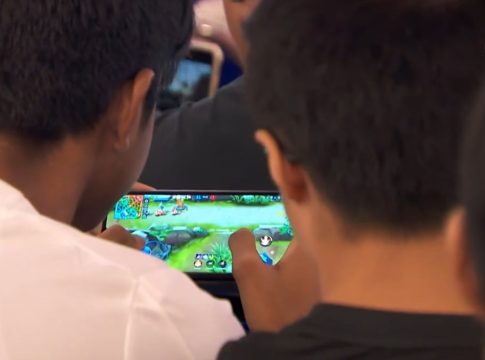Navigating the Rise of Gaming Addiction Among Youth: A Compassionate Approach
The emotional landscape of our youth has shifted significantly in recent years, especially in the wake of the COVID-19 pandemic. As our reliance on technology has grown, so too have concerns about gaming addiction among children and adolescents. Dr. Geraldine Tan, a seasoned psychologist at The Therapy Room, has observed a notable rise in the number of parents seeking help for their children’s device usage.
Understanding the Impact of Gaming Addiction
Before the pandemic, approximately half of the parents reported concerns regarding their children’s screen time. Today, that number has increased to nearly 80%. This shift highlights a growing issue that deserves our attention and understanding.
Gaming addiction often manifests as self-isolation. Youths who are deeply engrossed in video games may withdraw from essential activities such as schoolwork, family interactions, and social engagements. The implications can be serious; some individuals may even face educational setbacks due to excessive gaming.
One telling case involved a young man who spent so much time gaming that he ultimately failed college. His dependence on gaming led him to acquire multiple devices to enhance his experience, isolating him further from reality.
Navigating Screen Time: A Thoughtful Approach for Parents
Experts like Narasimman Tivasiha Mani advocate for a balanced approach to managing screen time. Instead of removing devices outright—a tactic that can trigger feelings of aggression and isolation—parents can regulate gaming habits. This understanding is crucial, as many youths used gaming as a coping mechanism during lockdowns and have continued to seek online social interactions in lieu of offline ones.
According to Mr. Tom Maniatis, a senior addictions therapist, reliance on gaming can leave these young individuals feeling trapped. This is especially concerning for evolving societies, where social isolation can lead to broader implications.
Paths to Recovery: Addressing Underlying Issues
For many young gamers, underlying mental health conditions such as ADHD, autism, depression, and anxiety often co-exist with gaming addiction. Understanding these connections is vital. By addressing the root causes of excessive gaming, we can cultivate healthier coping strategies.
Seeking family therapy may prove beneficial for those who use gaming as a way to escape familial challenges. Creating boundaries and guidelines around gaming can help families engage in more meaningful interactions.
Practical Tips for Parents:
- Set clear rules for gaming time.
- Encourage open conversations about feelings and experiences.
- Monitor your child’s emotional responses to gaming.
If you suspect your child is showing signs of gaming addiction—such as neglecting responsibilities, mood swings, or withdrawal—approaching the issue with compassion and support is essential.
Resources for Healing
For those seeking assistance, various organizations like REACH provide community-based services that connect youth with mental health professionals. Moreover, many counselling centres are embracing technology by offering virtual platforms that allow young individuals to access support in a more familiar, comfortable setting.
As we delve deeper into this issue, it becomes clear that fostering open communication about mental health and its challenges is essential. By doing so, we empower not only our youth but also ourselves, creating a supportive environment that encourages growth and understanding.
As we continue to navigate this evolving landscape, a collective effort to understand, compassionately address, and treat gaming addiction can lead to healthier futures for our children and society at large.

Covers wellness, nutrition, mental health, and daily life tips.
Bio: Talia brings a background in health journalism and holistic living to help readers live better, one tip at a time.

